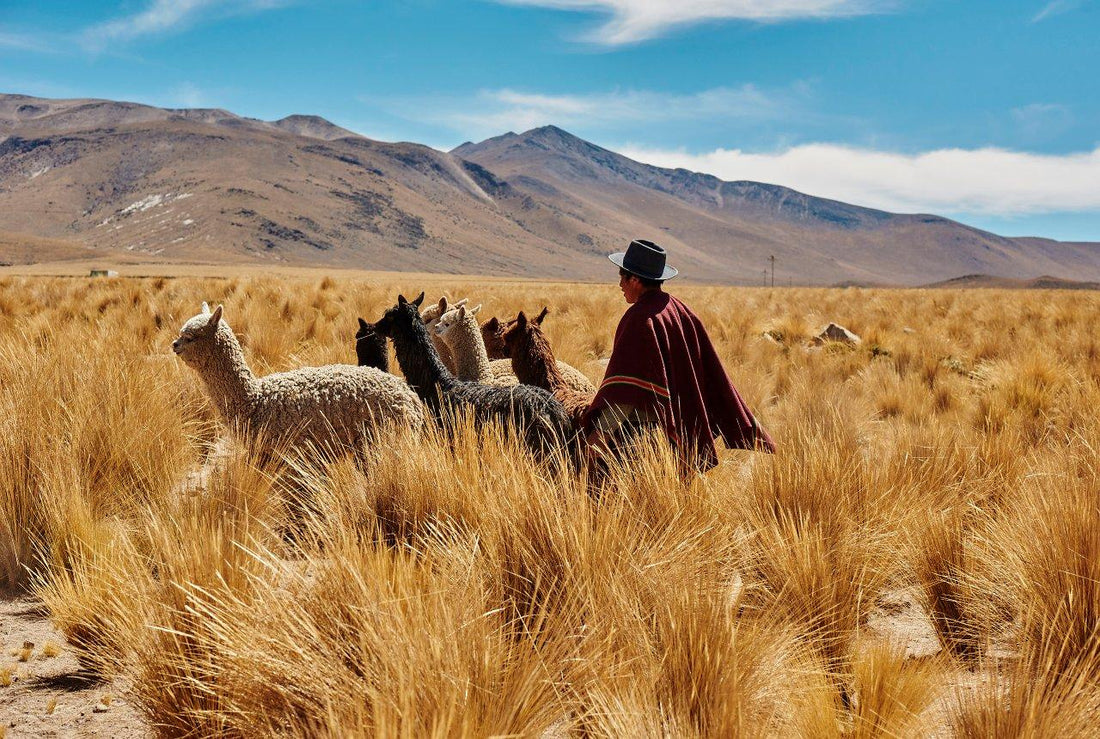
Meet The Makers of the Hepburn Baby Alpaca Scarf
Share

Meet The Maker: Alpaca Heritage Company
Family-founded in 1950, these artisans have perfected the complex art of producing high-quality, and sustainable alpaca fabrics. Achieving Peruvian fair trade practice certifications, they are experts in manufacturing not only alpaca fiber, but also that of vicuña (the smallest member of the camelid family).
The Alpaca Heritage Company has an extensive sustainability policy with 4 pillars that are integral to their brand and operations.

#1: Equitability
The Alpaca Heritage Company is passionate about community building. They provide safe working conditions and employ a team of majority women makers. They prioritize the community's quality of life and the conservation of their ancestral traditions.

#2: Environment
Alpaca Heritage Company has a recycling and upcycling program that uses ends of woven fabrics, yarn swatches and recycled polyester which avoids those scraps ending up in landfills. Through these processes, they are able to create beautiful, sustainable and durable textiles such as throws, rugs and even coats.

#3: Animal Well-Being
The Alpaca Heritage Company's alpacas live on a RAS (Responsible Alpaca Standard) certified farm, where a special shearing technique is used that reduces the stress levels of the animal during the process.


#4: Resilience
The Alpaca Heritage Company develops programs that respond to market changes and continuous improvement in nature and society, such as Why Alpaca and Pacomarca. Why Alpaca is an initiative that highlights the virtues of alpaca fiber, and Pacomarca is an experimental station for scientific research on the genetic improvement of alpacas.

A Natural, Sustainable Resource
Poko's Hepburn Baby Alpaca Scarves are made with 100% Peruvian baby alpaca, which means the fiber comes from the very first shear of an alpaca. This is a cruelty-free process. Baby alpaca is one of the most luxurious fibers in the world because the first shear of an alpaca is the softest an alpaca's fleece will ever be, as an alpaca's fleece becomes coarser with each sheer.
Did you know? Alpaca is one of the Earth's most sustainable fibers! The shearing of alpaca fleece is a very natural process that occurs only once a year. Alpacas have soft, padded feet, not hooves, which minimize soil erosion in their environment. They consume relatively less water than their camelid relations, and nibble on top of pasture grass without uprooting it.
Learn more about alpaca sustainability here.

